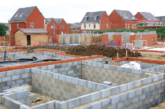
Rightmove asks government to consider retaining first-time buyer stamp duty threshold
- New analysis shows only 37% of homes for sale will be eligible for first-time buyer stamp duty relief in England come next April, down from 58% of homes that are currently eligible
- Currently, a first-time buyer pays no stamp duty on properties up to £425,000, but this is due to drop back to £300,000 from April 2025
- Since 2010, the average asking price of a home has risen by 62%, from £230,592 to £373,493
- According to UK Finance, around a third of first-time buyers purchase properties over £300,000
- Rightmove is asking the government to consider retaining the existing stamp-duty thresholds and providing additional help for first-time buyers
A new first-time buyer study by the UK’s biggest property website Rightmove reveals that only 37% of homes for sale will be eligible for first-time buyer stamp duty relief in England when the existing thresholds revert from April 2025.
Currently, a first-time buyer in England pays no stamp duty on properties up to £425,000. This means that the majority (58%) of homes for sale in England are free from stamp duty to first-time buyers, though it varies significantly by region.
From April 2025, the stamp duty-free threshold is set to reduce back down to £300,000. This means that, based on properties currently for sale, only 37% would be free from stamp duty to first-time buyers, a reduction of 21%.
The South West & East of England would be most impacted by the change, while the North East would be the least impacted. In London, fewer than one in ten homes will be free from a stamp duty charge to first-time buyers in April 2025 if the old thresholds return, compared to a quarter now.
Since 2010, the average asking price of a home has risen by 62%, from £230,592 to £373,493. If purchasing a home at the current average asking price, a first-time buyer will pay £3,675 in stamp duty in 2025, compared with nothing now.
According to UK Finance, around a third of first-time buyers look to purchase properties over £300,000, weighted towards London and the more expensive regions.
As costs have increased, the average age of a first-time buyer has been increasing over time. The average age of a first-time buyer is now 33 according to UK Finance data, compared with 31 in 2010.
Rightmove welcomes the new government proposals to help first-time buyers, including its initiative to give local first-time buyers the first chance to buy homes on developments. Its housebuilding targets and planning reforms should also positively impact those buying for the first time.
Rightmove’s analysis suggests that there are some limitations with a mortgage guarantee scheme, and it is only likely to be able to support a small number of first-time buyers. However, making it permanent would also at least give first-time buyers the confidence that it is an option for them.
Rightmove proposes that there is an opportunity to go further in supporting first-time buyers, by retaining the existing stamp-duty thresholds. Rightmove also suggests that a government review of mortgage affordability criteria and support for lender product innovations would help identify and potentially create more options for a greater number of first-time buyers, helping them to both borrow enough, and save up a large enough deposit.
Johan Svanstrom, Rightmove’s CEO said: “We welcome the new government’s meaningful ambitions for increasing housing supply. It should consider consumer support measures, by retaining the current first-time buyer stamp duty relief threshold of £425,000 in England, and looking at solutions to help first-time buyers with not only their deposit, but also being able to borrow enough from a lender. Mobility and housing is an important growth engine for the overall economy. We’re looking forward to lending our support to any policies being considered, by providing our market leading data to help assess the impact different policies could have.”
Tim Bannister, Rightmove’s property experts adds: “The housing market is made up of many connected pieces – as owning your first home becomes more difficult, some people rent for longer, which places an additional strain on the rental sector. Stamp duty is a barrier to movement, and keeping the existing thresholds seems like a logical step to providing some first-time buyer support. Even greater stamp duty reforms in the future could have wider implications, such as helping those who are considering downsizing.”








